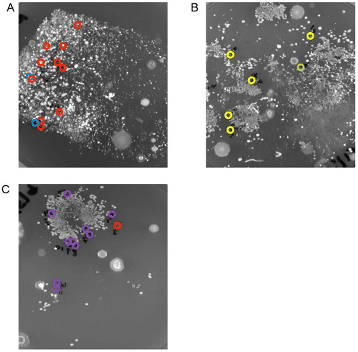Woundcare

Project Lead(s)

Research Fellow
Project Background
Most wounds including burn injuries and Buruli ulcer are colonized with Staphylococcus aureus, Enterococcus faecalis, Pseudomonas aeruginosa, Proteus species and anaerobic bacteria. The presence of multiple bacterial species and fungal species contribute to delayed wound healing. The microorganisms communicate via secretion of metabolites in response to changes in bacterial density and pH in the wound environment. These interactions may lead to cooperation (i.e. promote microbial growth) and synergy or competition via bacteriocin synthesis and hydrogen peroxide excretion, leading to shifts in the microbial ecology towards the most competitive bacteria.
Objectives/Research Areas
- Determine how aureus (bacteriocin producer) regulates bacterial growth in vivo using animal wound model.
- Investigate the role of putative genes in bacteriocin expression
The immune-compromised state of burn patients makes them prone to bacterial infections such as bacteremia, urinary tract infections, endocarditis etc. Further, infection control and prevention measures are poorly implemented leading to unnoticed disease outbreaks which cause poor patient outcomes.
The main objectives of this project are to characterize bacterial strains obtained from patient and healthcare workers, identify new genes involved in antibiotic resistance and possible disease outbreaks.
Team
External Collaborator(s)
Dr. Samuel Adjei – Animal Experimentation Department
Funder(s)
National Institutes of Health
The African Academy of Sciences
Bill & Melinda Gates Foundation

